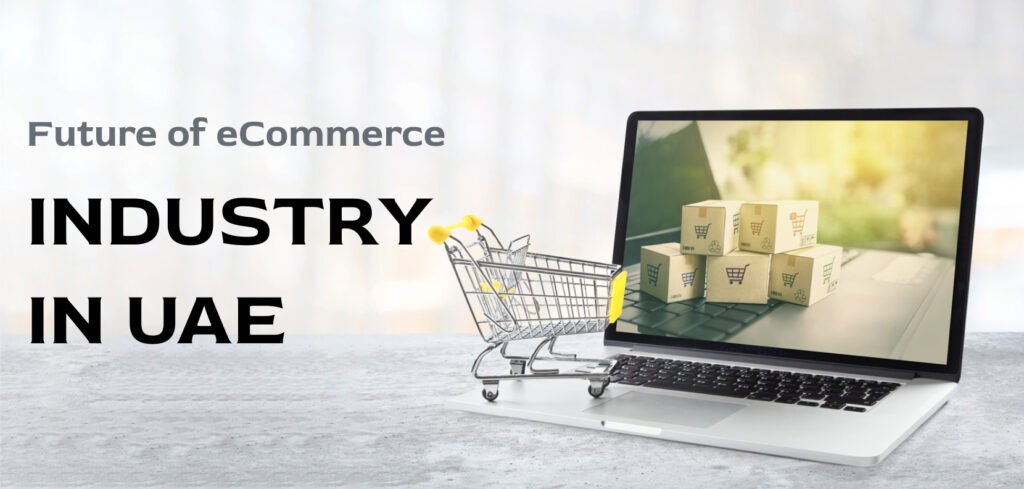The United Arab Emirates (UAE) has established itself as a thriving hub for commerce and innovation in the Middle East. With a diverse economy that heavily leans on technology and trade, the UAE is witnessing a significant transformation in its retail landscape, especially in the realm of ecommerce. The future of ecommerce development in the UAE is not just promising; it is poised to redefine the shopping experience, enhance consumer engagement, and drive economic growth.
Current State of Ecommerce in the UAE
As of 2023, the UAE boasts one of the highest ecommerce penetration rates in the world. The pandemic accelerated digital adoption, with many consumers turning to online shopping as their primary mode of purchasing goods and services. Major ecommerce platforms, such as Amazon.ae and Noon.com, have witnessed exponential growth, while local startups are also emerging to cater to niche markets.
The UAE’s strategic location as a gateway between the East and West, along with a tech-savvy population and high smartphone penetration, provides a fertile ground for ecommerce development. Furthermore, government initiatives aimed at boosting digital transformation are laying the groundwork for a robust ecommerce ecosystem.
Key Trends Shaping the Future of Ecommerce Development
1. Increased Personalization
One of the most significant trends in the future of ecommerce development is the move toward hyper-personalization. As retailers gather more data on consumer behavior, they can create tailored shopping experiences that cater to individual preferences. Advanced algorithms and machine learning will enable businesses to analyze data more effectively, delivering personalized recommendations and promotions.
In the UAE, where consumers expect a high level of service, personalization will play a crucial role in building customer loyalty. Brands that can offer relevant experiences—such as customized product suggestions, targeted marketing campaigns, and tailored communications—will likely see increased engagement and sales.
2. Rise of Social Commerce
Social media platforms are increasingly becoming essential marketplaces. The future of ecommerce development in the UAE will see a growing integration of shopping features within social media apps like Instagram, Facebook, and TikTok. These platforms enable brands to reach a broader audience and provide seamless shopping experiences.
In the UAE, where social media usage is exceptionally high, leveraging social commerce can significantly enhance brand visibility. Influencer marketing will continue to play a pivotal role, allowing brands to connect with consumers in more authentic and engaging ways.
3. Mobile-First Approach
With mobile devices dominating internet usage in the UAE, a mobile-first approach to ecommerce is critical. Future ecommerce development will focus on optimizing websites and applications for mobile users, ensuring fast loading times, easy navigation, and streamlined checkout processes.
As mobile payment options like Apple Pay, Google Pay, and local wallets gain traction, businesses will need to integrate these payment solutions to enhance user experience and reduce cart abandonment rates. Additionally, augmented reality (AR) features that allow customers to visualize products before purchasing will further enhance mobile shopping experiences.
4. Sustainable Ecommerce Practices
Sustainability is becoming a key consideration for consumers, especially in the UAE, where environmental awareness is on the rise. The future of ecommerce development will involve adopting sustainable practices, such as eco-friendly packaging, carbon-neutral shipping, and ethical sourcing.
Brands that prioritize sustainability will not only appeal to environmentally conscious consumers but also differentiate themselves in a competitive market. As regulations around sustainability become stricter, businesses will need to adapt quickly to meet consumer expectations and comply with emerging laws.
5. Advanced Technologies
The incorporation of advanced technologies such as artificial intelligence (AI), machine learning, and blockchain will shape the future of ecommerce development. AI can enhance customer service through chatbots and virtual assistants, providing immediate support and personalized interactions. Machine learning algorithms can optimize inventory management and demand forecasting, reducing operational costs.
Blockchain technology offers enhanced security and transparency in transactions, which can build consumer trust—especially important in the UAE’s rapidly evolving digital economy. By ensuring secure payment methods and traceable supply chains, blockchain can play a pivotal role in ecommerce development.
6. Omnichannel Strategies
As consumers increasingly expect a seamless shopping experience across multiple channels, the future of ecommerce development in the UAE will be heavily centered on omnichannel strategies. Retailers will need to integrate their online and offline presence to create a cohesive brand experience.
This includes synchronizing inventory management, providing click-and-collect options, and utilizing data analytics to understand customer journeys across different touchpoints. By offering flexible shopping options, businesses can enhance customer satisfaction and drive sales.
7. Government Support and Regulations
The UAE government is actively fostering a digital economy, providing support through initiatives like the Dubai eCommerce Strategy and various free zones that cater to ecommerce businesses. Future ecommerce development will benefit from ongoing government efforts to streamline regulations, reduce barriers to entry, and promote innovation.
By creating a favorable environment for startups and established companies alike, the government is positioning the UAE as a leader in the ecommerce space. This support will encourage investment in technology and infrastructure, paving the way for sustainable growth in the sector.
Challenges Ahead
Despite the promising outlook, the future of ecommerce development in the UAE faces several challenges. Competition is intensifying, with both local and international players vying for market share. Additionally, issues such as cybersecurity threats, supply chain disruptions, and changing consumer preferences require businesses to remain agile and adaptive.
Moreover, while digital payment systems are gaining popularity, some consumers still prefer cash transactions, which may slow down the full transition to online shopping. Businesses must address these concerns to capitalize on the opportunities in the ecommerce landscape.
Conclusion
The future of ecommerce development in the UAE is bright, characterized by innovation, personalization, and sustainability. As technology continues to evolve, businesses must adapt to meet the changing needs of consumers while leveraging advanced tools and strategies.
With strong government support and a vibrant entrepreneurial ecosystem, the UAE is set to become a leading player in the global ecommerce arena. Companies that embrace these trends and remain responsive to consumer demands will thrive in this dynamic market, shaping the future of retail in the region. As we look ahead, the potential for ecommerce in the UAE is not only substantial; it is transformative, offering exciting possibilities for businesses and consumers alike.







